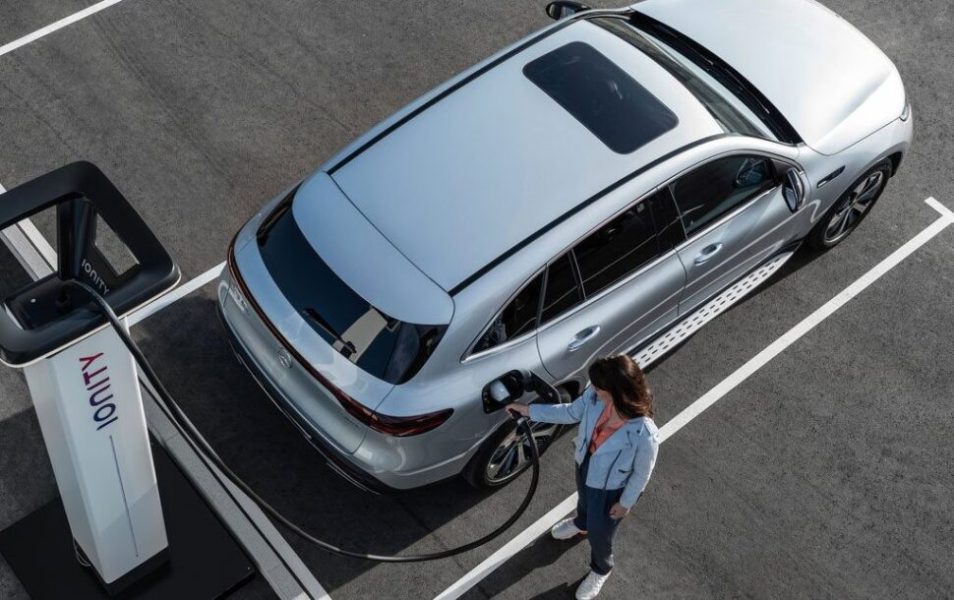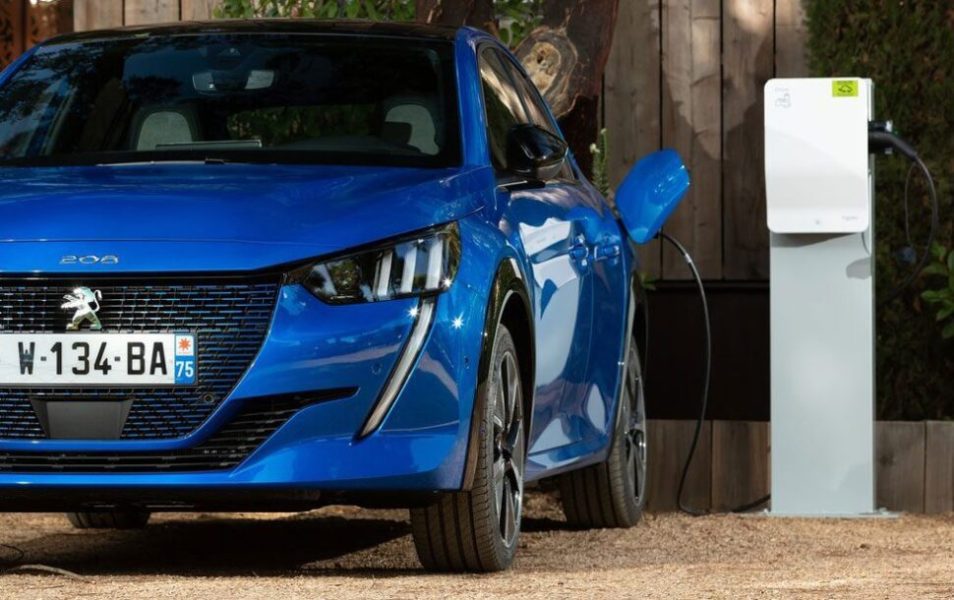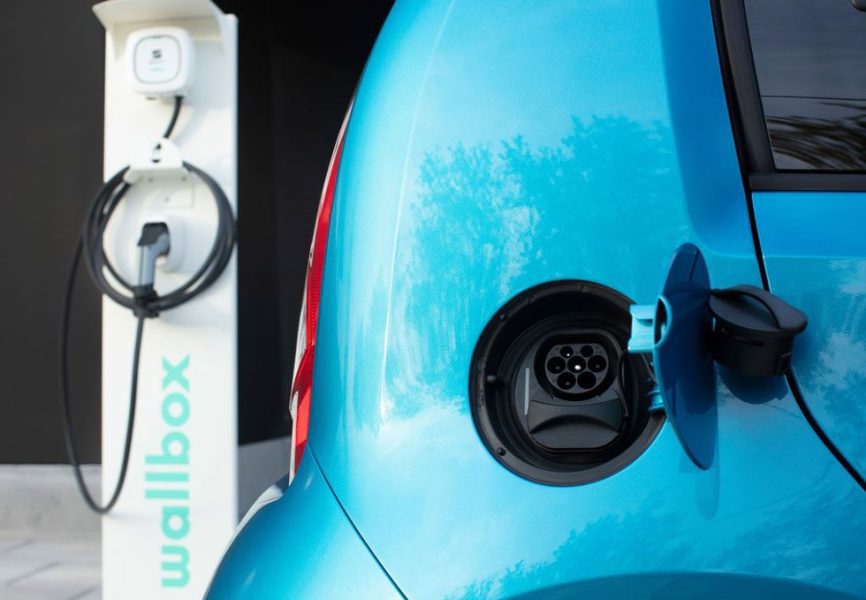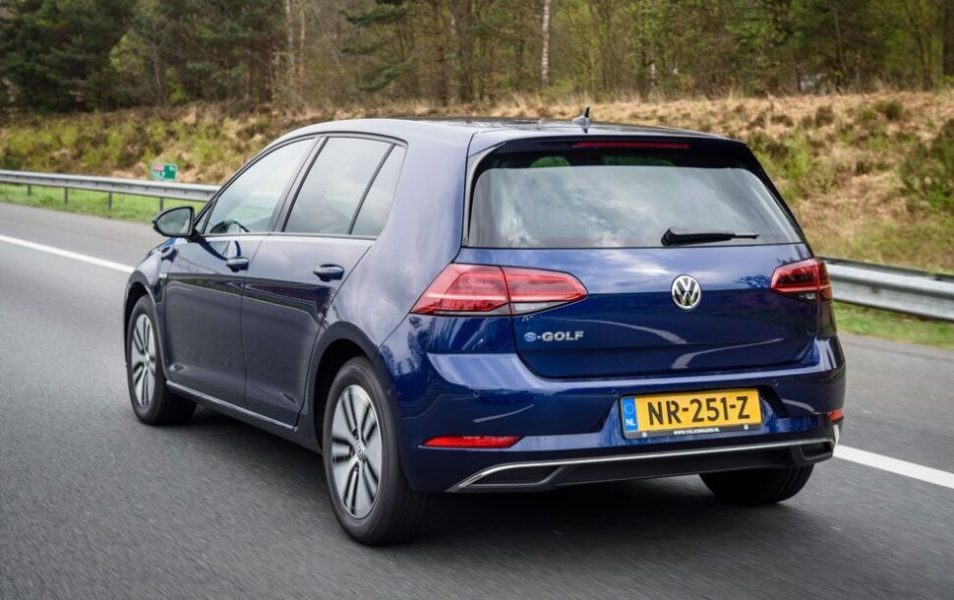
Electric driving cost
Content

How much does electric driving cost? The answer to this topical question will be given in this article. Special attention will be paid to the various charging options and associated costs. The cost per kilometer will also be compared to the cost of gasoline. In the article on the cost of an electric vehicle, we discuss general cost sheet.
A small reservation in advance, possibly unnecessary: the prices shown are subject to change. So check the respective party's website to make sure you have current prices.
House payment costs
You can simply connect your electric car at home. From a price point of view, this is the most understandable option: you just pay your regular electricity tariff. The exact amount of payment depends on the supplier, but on average it is about 0,22 € per kWh (kilowatt hour). If you charge as much as possible at home, you have the lowest costs when charging an electric vehicle.
This is not the fastest charging method, but you can change it by purchasing your own charging station or wall box. Charging at home can be even cheaper if you generate your own electricity using solar panels. In this situation, you have the greatest economic advantage from electric driving.

Cost of your own charging station
How much you pay for your own charging station depends on various factors: the provider, the type of connection, and the amount of energy the charging station can supply. It also matters whether you choose a “smart charging station” or not. A simple charging station starts at 200 euros. An advanced smart three-phase charging station with dual connectivity can cost € 2.500 or more. So prices can vary a lot. Aside from the costs of the charging station itself, there can also be additional costs to set up and set up at home. You can read more about this in the article on buying your own charging station.
The cost of public charging stations
Things get complicated at public charging stations. There are different types of charging stations and different providers. The cost may vary depending on the place and time. In addition to the amount per kWh, you sometimes also pay the subscription cost and / or the initial rate per session.
Fares at public charging stations mostly depend on two parties:
- charging station manager, also known as Charching Point Operator or CPO; and:
- service provider, also known as mobile service provider or MSP.
The first is responsible for the installation and proper functioning of the charging station. The second is responsible for the payment card that you need to use the charging point. A distinction can be made between conventional charging stations and the more expensive fast chargers.
Conventional charging stations
Allego is one of the largest operators of public charging stations in the Netherlands. They charge a standard fee of €0,37 per kWh at most regular charging points. In some municipalities this figure is lower. With NewMotion (part of Shell) you pay €0,34 per kWh at most charging points. Some have a low rate - 0,25 euros per kW / h. The price is about 0,36 € per kWh quite common at regular public charging points.
The rate also depends on your payment card. You often just pay the CPO (manager's rate), for example, with an ANWB payment card. However, in some cases an additional amount is added. Plug surfing, for example, adds 10% to this. Some providers also charge starting rates. For example, ANWB charges €0,28 per session, while Eneco charges €0,61.
Applying for a payment card is free for many parties. At Plugsurfing you pay € 9,95 one time and € 6,95 at Elbizz. Many providers like Newmotion, Vattenfall and ANWB don't charge any subscription fees either. For the parties that do this, this is usually between three and four euros per month, although there are upward and downward variations.

Sometimes a fine will also be charged. This fine is intended to prevent the so-called "charging station jam". If you stand for too long after your car has been charged, a fine will be charged. For example, in Vattenfall it is € 0,20 per hour if less than 1 kWh per hour is purchased. The municipality of Arnhem charges € 1,20 per hour. This starts 120 minutes after the vehicle is charged.
Fast chargers
In addition to conventional charging stations, there are also fast chargers. They charge significantly faster than conventional charging stations. A car with a 50 kWh battery can be charged up to 80% in fifteen minutes. Of course, you have to pay more for this too.
Fastned is the largest fast charger operator in the Netherlands. they charge 0,59 € per kWh... With a Gold membership for € 11,99 per month, you pay € 0,35 per kWh. Allego also offers fast chargers in addition to regular charging stations. They charge for it 0,69 € per kWh.
Then comes Ionity, which is a collaboration between Mercedes, BMW, Volkswagen, Ford and Hyundai, among others. They originally charged a flat rate of € 8 per charging session. However, fast charging is now much more expensive in Ionity, with the speed 0,79 € per kWh... It's cheaper with a subscription. For example, Audi owners can charge a monthly fee of € 17,95 at a rate of € 0,33 per kWh.
Tesla is another matter because they have their own exclusive fast charging devices: the Tesla Supercharger. Charging is significantly cheaper than with other fast charging devices because it can already be done for 0,25 € per kWh... Tesla, in its own words, does not intend to make a profit here and therefore can apply such a low rate.
Until 2017 inclusive, charging in Superchargers was even unlimited and free for all Tesla drivers. After that, the owners received a free loan of 400 kWh for some time. From 2019, unlimited free charging is back. However, this only applies to Model S or Model X and only to first owners. As for all models, you can get 1.500 km of free surcharges through the referral program. This program means that Tesla owners receive a code upon purchase and can share it with others. Those who buy a car using your code will receive a free Supercharge credit.

Uncertainty
There is a great deal of uncertainty regarding tariffs. This makes it difficult to understand the exact costs of electric driving. Charging stations often do not show speed, as is the case with a gas pump. What you end up paying for a charged battery depends on many factors: the type of charging station, the location of the charging station, how busy it is, the provider, the type of subscription, etc. chaotic situation.
Payment expenses abroad
What about the cost of charging an electric car abroad? To begin with, you can also use many payment cards in other European countries. Newmotion / Shell Recharge payment cards are the most common in Europe. Many other payment cards are also supported in most European countries, with the exception of Eastern Europe. Just because a country accepts payment cards doesn't mean it has good coverage. The MoveMove payment card is only valid in the Netherlands, while the Justplugin payment card is only valid in the Netherlands and Belgium.
It's hard to say anything about prices. There are no clear rates abroad either. Prices can be higher or lower than in the Netherlands. If in our country it is almost always calculated per kWh, in Germany and some other countries it is often calculated per minute. Then prices can go up dramatically for cars that don't charge as quickly.
It is advisable to know in advance how much it costs to charge in a specific location in order to avoid (unpleasant) surprises. Preparation is generally important for traveling long distances in an electric vehicle.

consumption
The cost of electric driving also depends on the vehicle's fuel consumption. Compared to a fossil fuel engine, an electric motor is, by definition, much more efficient. Thus, electric vehicles can drive significantly longer with the same amount of energy.
The flow rate declared by the manufacturer is measured by the WLTP method. The NEDC method used to be the standard, but it was replaced because it was too unrealistic. You can read more about the difference between these two methods in the article on the range of an electric vehicle. Although WLTP measurements are more realistic than NEDC measurements, in practice the consumption is often slightly higher. However, this is the best way to compare electric vehicles as it is a standardized method.
According to WLTP measurements, the average electric car currently consumes about 15,5 kWh per 100 km. Not surprisingly, there is a relationship between machine weight and consumption. The trio of Volkswagen e-Up, Skoda Citigo E and Seat Mii Electric are among the most economical electric vehicles with a consumption of 12,7 kWh per 100 km. However, not only small city cars are very economical. The 3 Standard Range Plus also performs very well with 12,0 kWh per 100 km.
At the other end of the spectrum are large SUVs. For example, the Audi e-Tron consumes 22,4 kWh per 100 km, while the Jaguar I-Pace consumes 21,2. Porsche Taycan Turbo S - 26,9 kWh per 100 km.

Electricity costs versus gasoline costs
It's nice to know how much electricity costs per kilowatt-hour, but how do those prices compare to gasoline prices? To estimate the cost of electric driving, we compare the cost of electricity and gasoline. For this comparison, let's say the price of gasoline is € 1,65 per liter for € 95. If the car drives 1 in 15, that means you pay € 0,11 per kilometer.
How much do you pay for the average electric vehicle per kilometer of electricity? We assume that the power consumption is 15,5 kWh per 100 km. That's 0,155 kWh per kilometer. If you charge at home, you pay about € 0,22 per kWh. So you get € 0,034 per kilometer. This is significantly cheaper than the cost of gasoline per kilometer of an average car.
Not everyone has their own charging station, and not everyone has the ability to charge it at home. At a public charging station, you usually pay € 0,36 per kWh, as stated earlier in this article. With an energy consumption of 15,5 kWh per 100 km, the costs will be 0,056 euros. It's still half the price of gasoline.
Fast charging is much more expensive. Assuming the tariff is € 0,69 per kWh, you get a price of € 0,11 per kilometer. This puts you on a par with a petrol car. The frequency of fast charging depends, among other things, on what charging options are available at home and how many kilometers you travel in a day. There are electric car drivers who only need to use it from time to time, but there are also electric car drivers who charge fast almost every day.
Example: golf vs e-golf

Let's also take a specific example of two comparable vehicles: the Volkswagen e-Golf and the Golf 1.5 TSI. The e-golf has 136 horsepower. 1.5 TSI with 130 hp is the closest gasoline option in terms of characteristics. According to the manufacturer, this Golf drives 1 in 20. With a petrol price of 1,65 euros, this is 0,083 euros per kilometer.
Electronic golf consumes 13,2 kWh per kilometer. Assuming a home charge is € 0,22 per kWh, the electricity cost is € 0,029 per kilometer. So it's significantly cheaper. If you only charge through public charging stations at € 0,36 per kWh, the cost per kilometer is € 0,048, which is still almost half the cost of gasoline per kilometer.
How much is the ultimate cost benefit of electric driving depends on several factors, in particular consumption, charging method and the number of kilometers traveled.
Other expenses
Thus, in terms of electricity costs, an electric vehicle is financially attractive. Electric vehicles have a number of other financial advantages as well as disadvantages. Finally, we'll take a quick look at them. An extended version of this can be found in the article on the cost of an electric vehicle.

Price
A known drawback to electric vehicles is that they are expensive to buy. This is mainly due to the battery and the expensive raw materials required for its production. Electric cars are getting cheaper and more and more models are appearing in the lower segment. However, the purchase price is still significantly higher than that of a comparable gasoline or diesel vehicle.
service
In terms of maintenance costs, electric vehicles again have an advantage. An electric powertrain is much less complex and prone to wear and tear than an internal combustion engine. Tires can wear out a little faster due to the higher weight and torque. Electric vehicle brakes still rust, but otherwise wear much less. This is because an electric vehicle can often brake on the electric motor.
road tax
Electric vehicle owners do not have to pay road tax. This is valid until at least 2024. In 2025, a quarter of the road tax must be paid, and from 2026, the full amount. However, while this can still be counted among the advantages of an electric car.
Depreciation
The residual value of both electric and gasoline vehicles is still uncertain. Expectations for electric vehicles are positive. For a C-segment car, the residual value in five years will still be between 40% and 47,5% of new value, according to ING research. A gasoline vehicle from the same segment will retain 35% to 42% of its new value.
Insurance
Due to insurance, the costs of driving on electric traction are again slightly higher. In general, it is more expensive to insure an electric car. This is mainly due to the simple fact that they are more expensive. In addition, repair costs are higher. This is reflected in the cost of insurance.
The article on the cost of an electric vehicle discusses the above points in more detail. It will also be calculated, based on several examples, whether an electric car is worth below the line.
Conclusion
While we've briefly touched on other EV costs, this article has focused on charging costs. There are many things to put together for this. Therefore, it is impossible to give an unambiguous answer to the question: how much does an electric car cost? Of course, you can see the average prices. If you mainly charge at home, the costs are most obvious. It is also the cheapest option: electricity costs around € 0,22 per kWh. If you have a driveway, be sure to have your own charging station.
Charging at public charging stations is more expensive, averaging around € 0,36 per kWh. Regardless, you also get significantly less per kilometer than a comparable petrol car. Thus, electric cars are of interest, especially if you travel for many kilometers, although fast charging still needs to be used more often. With fast charging, the cost per kilometer is close to that of gasoline.
In practice, however, it will be a combination of charging at home, charging at a public charging station, and charging with a fast charger. How much you win depends on the proportions in this mix. However, the fact that the cost of electricity will be much lower than the cost of gasoline can be said for sure.

